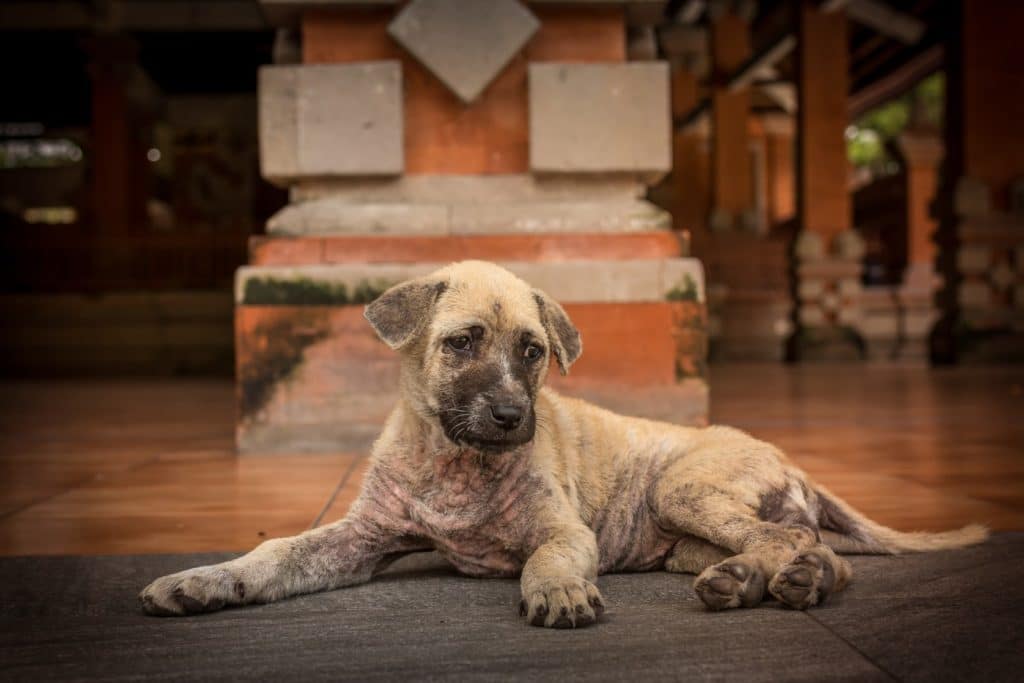
How Long Does Kennel Cough Last? Causes, Symptoms, and Treatment
Written By: Tiffany Ruiz Dasilva, VMD, cVMA | Professional Services Veterinarian, Wild Earth
Many of us have likely suspected that our dog has had kennel cough at one time or another. It usually goes a little something like this… You take your pup to visit a dog park or leave them at a doggy hotel, and soon after they start having a loud, hacking cough, which starts to sound almost like a goose honk.
With kennel cough, also known as infectious tracheobronchitis, this cough is usually accompanied by other symptoms such as a runny nose, eye discharge, inappetence and lethargy.
While these symptoms accompanied with the history of a recent trip to a dog park or dog hotel are most typical of kennel cough, symptoms can be variable, ranging from very mild to a persistent cough that lasts for weeks.
Although it sounds concerning, kennel cough is relatively common and it’s not usually a serious issue. Most of the time, dogs will have mild symptoms which resolve entirely on their own without any need for medication. For some dogs, however, kennel cough can become a serious, and even life-threatening issue especially for older dogs, young puppies, or dogs with compromised immune systems.
Causes of Kennel Cough In Dogs
Kennel cough is often referred to as Canine Infectious Respiratory Disease Complex (CIRDC) because it can be caused by a number of pathogens, including viruses and bacteria.
Bordetella
The most common bacteria involved is Bordetella bronchiseptica.
Viruses
In the majority of cases, a combination of the Bordetella bacteria and an infectious virus, such as parainfluenza virus, is what leads to kennel cough. Typically, the virus will weaken a dog’s immune system, making them more susceptible to the Bordetella bacteria.
Aggravating Factors
Certain factors can make a dog more susceptible to catching kennel cough. These factors include:
- Stress associated with travel, loud noises in kennels, changes at home, etc
- Exposure to dust or smoke
- Cold temperatures
Avoiding these factors might not always be possible, but doing your best to keep your dog away from them will make kennel cough less likely.

Transmission of Kennel Cough In Dogs
Kennel cough is highly contagious, and can be transmitted between dogs in three main ways: Through the air, through contact with contaminated objects, and through direct contact with other infected dogs.
The Air
Bordetella bacteria and the viruses that often accompany it are easily spread through the air, which is why kennel cough is so contagious. When an infected dog coughs, sneezes, or barks, thousands of contaminants are spread into the air around them. Those contaminants can travel through the air and infect another dog.
Contaminated Objects
Bordetella bacteria can survive on surfaces for up to two full days, so it’s easily spread between dogs via contaminated objects. An infected dog might pick up a toy, or drink from a water dish that a healthy dog uses afterward. That healthy dog is then likely to contract the bacteria and/or virus.
Dog-to-Dog Contact
Of course, kennel cough can easily be spread among dogs in close contact with each other. In fact, that’s where the illness gets its name: It’s easily spread when large numbers of dogs are housed in close quarters together, like in a boarding kennel.
Kennels aren’t the only places that dogs hang out, though. Dog parks, grooming facilities, doggy daycare, and even pet stores present an opportunity for the illness to be spread.
Symptoms of Kennel Cough For Dogs
It turns out that most of the symptoms of kennel cough are similar to that of a human cold. Symptoms include:
- A dry, hacking, or honking cough. The classic symptom is a loud, persistent cough that sometimes sounds more like honking. Some dogs cough constantly, while some have coughing fits with periods of respite in between.
- Discharge. A runny nose and eye discharge often accompany kennel cough.
- Inappetence. Some dogs might not have as much of an appetite so you may notice they aren’t eating as much.
- Lethargy. Not every dog will be weak and lethargic, and some might go about their business normally with the exception of the cough. Some, though, will have a decrease in their energy level.
- Fever. Some dogs might develop a low-grade fever, indicating that the body is fighting off an infection. Not all dogs show this symptom.

How to Treat Kennel Cough and How Long Does It Last?
If your dog is exhibiting the above symptoms and you suspect he or she might have kennel cough, what do you do?
Since it’s so contagious, the first step is to isolate your dog from other pets in the house. Next, call your veterinarian so they can advise you on how to proceed.
The majority of cases will not require treatment at all as there is no specific treatment for viral infections. As strange as it sounds, the usual course of action is to simply let your dog’s immune system fight off the problem itself. In these cases, kennel cough will resolve on its own in about 10 days, although it could take longer in older dogs or dogs with compromised immune systems or other medical issues.
The more severe symptoms of kennel cough are usually caused by bacteria, most commonly Bordetella bronchiseptica. In these cases, antibiotics are usually given along with antitussives (cough suppressants) and even anti-inflammatories in more severe cases. Based on the severity of your dog’s symptoms, your vet will determine the best choice of treatment. For more severe cases, kennel cough can last up to about 3 weeks.
Whether your pup has a mild or severe case of kennel cough, here are a few recommendations for helping your dog to feel more comfortable while they’re recovering:
- Keep stress to a minimum. A dog that’s constantly anxious will not recover from kennel cough as quickly as they would otherwise.
- Try a humidifier. Setting up a humidifier device in the area where your dog stays can help to soothe your dog’s lungs and respiratory system.
- Avoid smoke. Keep your dog away from sources of smoke, such as cigarettes or campfires, as it could trigger more coughing.
- Use a harness instead of a leash. When walking your pup outdoors, a leash that pulls on a collar around the neck might irritate your dog’s throat, leading to a coughing fit. A harness pulls on your dog’s chest and body instead.
A prolonged case of kennel cough can lead to pneumonia or other serious health problems, so let your vet know if your dog doesn’t improve within the typical window of time. Remember that the most high-risk dogs are young puppies, geriatric dogs, and those with compromised immune or respiratory systems.
Learn about our Vegan Dog Food to help provide your dog with all of the nutrients they need to thrive.
Preventing Kennel Cough
It’s not always possible to prevent kennel cough, but the best way to protect your pup is through vaccination.
If your dog is commonly boarded, groomed or interacts with other dogs, your veterinarian will likely recommend they receive the Bordetella vaccine. It can either be injected, administered as a nasal mist (intranasal vaccination), or given by mouth. The vaccine is usually given once a year, but it may be given every six months for more high-risk dogs. The Bordetella vaccine isn’t always 100% effective in preventing kennel cough, but it will help to decrease the severity of symptoms if they are infected. Talk to your veterinarian about the right vaccination schedule for your dog.
Very Common and Usually Not Serious
Kennel cough might sound bad while your pup is suffering through it, but it’s usually more uncomfortable than it is dangerous. By knowing what to look out for, minimizing risk factors as much as you can, and working closely with your vet when the sickness does come around, your dog will stand the best chance of making a speedy recovery.
Vitamin Supplements for Dogs
Why do dogs need supplements? Age, environment, pollutants, and the stressors of daily life can all lead to less than optimal health for your dog. We’ve created a family of supplements to provide support in the areas your dog needs it most.
Tiffany Ruiz Dasilva, VMD, cVMA
Dr. Tiffany Ruiz Dasilva is the Professional Services Veterinarian here at Wild Earth. She received her Bachelor of Science degree in Biology from Brown University, and attended veterinary school at the University of Pennsylvania School of Veterinary Medicine. Since graduation, she has worked in general practice, on telehealth platforms, and in animal rehabilitation. She has worked tirelessly to gain expertise in the field of canine nutrition through numerous certifications and coursework, and plans to pursue her Masters in Animal Nutrition.



























